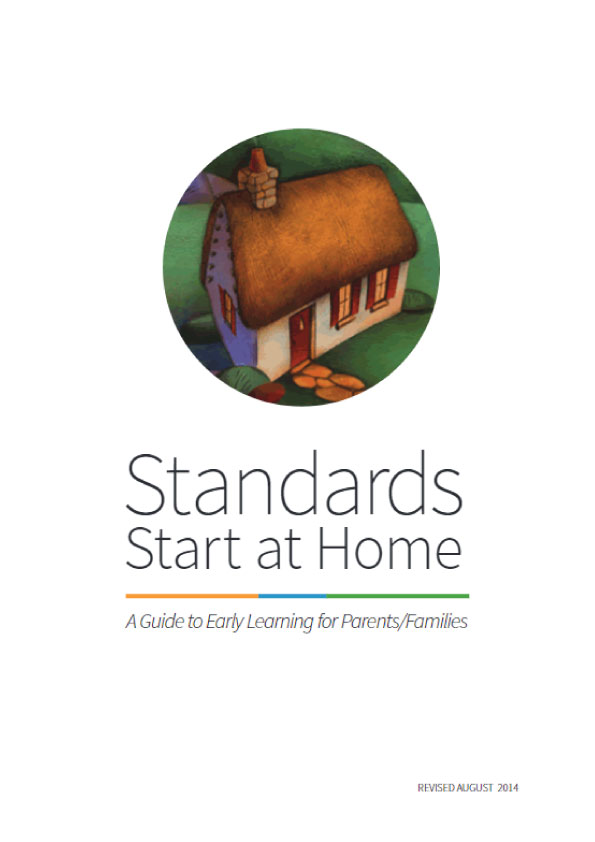School Day #1: Getting the Family Together
Call your family together. Tell them you have something you wish to talk with them about. Have everyone seated in a quiet room — no television or radio. Then say the following: (Don’t read this to them. Put it in your own words.)
“I have something to say to you that is very important. A mother wants to do her best for her children. I know that doing my best means seeing that you do your best in school. I want to do a better job of helping you do your best in school. I want you to follow a plan that has worked for many other families. To start, each student will bring schoolwork home tomorrow, and we will meet at the kitchen table at 7:00 [pick a time when everyone is home]. We will be following this plan because we care about each other, and because learning is important to our family. Remember, every student will bring schoolwork home tomorrow, and we will meet at the kitchen table at 7:00.”
That is all you have to say. If there are two parents in the home, they should present this to the children together. There is no need for discussion at this point. Allow the children to be curious. Just be sure that they know to bring schoolwork home and to meet at the kitchen table at the time you decided upon.
School Day #2: Study Place
Remind the children in the morning to bring their school-work or books home that night. Remind them to meet at the kitchen table at the time you decided upon.
Before the study time, prepare the kitchen table to be a Study Place.
- Be sure there is enough room and enough chairs for everyone. Maybe you will have to use a card table in addition to the kitchen table. Every student should have a place to sit and a surface to write on.
- Put dictionary, paper, pencils, pens, and a pencil sharpener in the middle of the kitchen table.
- The room must be quiet — no television, radio, or other disturbances.
- Have a small, healthful snack and/or drink ready to serve the children later.
When it is time to begin, ask each child to sit in a chair and begin to study. Tell them that you will speak with them in just a few minutes. If a child says he has no homework, tell the child to read a book or do a few extra arithmetic problems.
Say something like this:
“It makes me very proud to see my children studying and learning. We have created a special Study Place in our home. Please continue to work quietly. When you have finished your work, you may leave. We will meet here again tomorrow at 7:00 [pick a time when everyone is home].” Serve the snack. Let each child leave when he or she wishes. Keep the children as quiet as possible. Smile at them and let them know you are proud.
School Day #3: Study Time
Prepare your Study Place at the kitchen table as you did the day before. When the children begin studying, tell them you will talk with them in a few minutes. Let them study quietly for about 10 minutes, then say something like this:
“We now have a family Study Place. I am very happy to see my children studying and learning. But I know you are wondering how much time you should spend with your studies. You are also wondering if you must always study at the same time. I have some answers for you.
“Our family rule will be that each student will study 10 minutes per grade level per day, five days per week. We will not study on Friday or Saturday evening unless there is extra schoolwork that must be done. Ten minutes per grade level per day means that if you are in the second grade, you study 20 minutes each day. If you are in the sixth grade, you study 60 minutes each day. If you are in the ninth grade, you study 90 minutes each day.
“You may study more than this amount, but you may not study less than this amount. If your assignments are completed, you may spend the remaining time reading or organizing your notebooks or working extra problems.
“If you have an activity and cannot be home at the Study Time, you may study at another time. But I want to know when that time will be. So tell me. Plan ahead so that you complete your Study Time each day.”
Serve the snack. Let the children finish their Study Time. Check on them occasionally
School Day #4: Checking and Praising
Your family now has a special Study Place, and your children know the amount of time you expect them to spend with their studies each day, five days per week. Now it is your job to see that the children meet your expectations. You must check on them. In a friendly but firm manner, you must see that each child continues to bring home school- work or books every day. You must see that the kitchen table is available as a Study Place. You must see that the minimum amount of Study Time is observed. Then give your children plenty of praise for good study habits and for positive attitudes.
Check:
- Is each child studying 10 minutes per grade level per day?
- Is the kitchen a quiet place to study?
- Are your children bringing books and schoolwork home?
Your children should not think of Study Time as punishment. You can make it a happy time. Prepare a snack occasionally. Be interested in their work without disturbing them too much. CHECK on them. PRAISE them.
School Day #5: Listening
By now, your children should understand that you expect them to spend time each day studying in a quiet place. You must keep checking on them so that the habit of daily study is established.
You must also listen to your children. Show an interest in them. Each day, find at least one minute alone with each child. Sit down with the child. Ask him or her to tell you about his or her day. Then listen. Ask questions, but mostly listen. Don’t let the child say, “Nothing happened today,” and leave. Keep the conversation going with each child for at least a minute.
Miss Henry’s Five Rules
Study Place: 1. Every child should have a quiet place to study in the home.
Study Time: 2. Every child should spend at least 10 minutes per grade level per day studying at home.
Check: 3. Parents must check to see that Study Time is observed.
Listen: 4. Parents should listen to each child each day.
Praise: 5. Parents should praise children for studying and for having positive attitudes about school.











